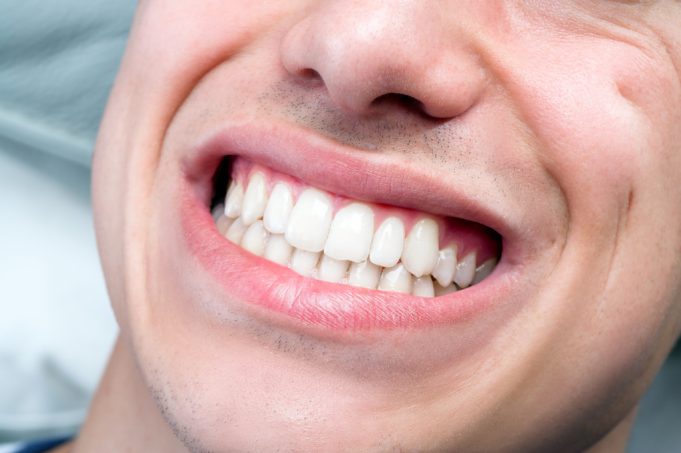Ever woken up in the morning with sore teeth or a dull headache? Well chances are you might be grinding your teeth. Estimated to affect half the population at some time of their lives, and five per cent of people regularly, grinding your teeth or clenching your jaw can have long-term consequences for the health of your teeth.
So how do you know you’re doing it, and can orthodontic treatment assist?
Symptoms
Also known as bruxism, teeth grinding, gnashing or clenching tends to happen involuntarily when people are asleep. For most of the population it occurs occasionally, but for some teeth grinding happens regularly.
As it happens while you’re sleeping, it often takes someone else to point out that you are grinding your teeth, but other telltale signs include:
- A dull ache in your jaw or jaw stiffness when you wake up
- Headache, jaw pain and/or ear ache
- An ache in your temples or sore facial muscles
- Clenching the jaw when you’re stressed, anxious or concentrating
- Temperature-sensitive teeth
- Deteriorating tooth enamel or tooth wear
- Loose teeth
Causes
The causes of tooth grinding can vary and come and go over the course of your life. Prime reasons for bruxism are:
- Stress or anxiety
- Poor health, malnutrition or ongoing pain
- Tooth/jaw misalignment
- Alcohol or drug consumption
- Fillings that sit too high
- Erupting adult teeth
Effects
Although it may seem like a small thing that you don’t even notice, the long-term effects of persistent grinding can impact the overall health of your teeth and the quality of your sleep. Some of the most common effects include:
- Worn or cracked tooth enamel which leaves you more prone to decay
- Additional fillings and even root canals
- Tooth wear and cracking
- Interrupted sleep
- Broken teeth and cracked or loose fillings
- Strain on the jaw joint
- Pain or ache in the face or jaw
Treatment
The treatment for bruxism will depend on the cause identified, but in some cases orthodontic intervention can assist.
Examples where orthodontic treatment can eliminate or reduce grinding include when teeth meet at the incorrect angle or only a few actually come together. If you suspect this might be the reason for your grinding, then definitely check in with your orthodontist.
Meanwhile, in other cases there are a variety of treatments and preventative measures available. Tips include:
- Eliminating caffeine and alcohol consumption before bed time
- Using relaxation techniques prior to going to sleep
- Ensuring you maintain a proper diet
- Regular exercise
If the bruxism persists then a mouthguard or splint might be required to protect your teeth from unnecessary wear. Mouthguards can either be custom-fitted for comfort or are available over the counter.
About Norwest
Norwest Orthodontics specialises in helping patients achieve a great smile, no matter their age. We feature a range of orthodontic treatments that span from early intervention right through to remedial adult work.
You can learn more about our services, or contact us to make an appointment.




